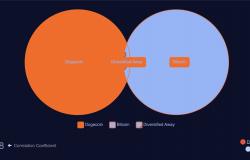In Bolivia there is political tension after the Former general Juan José Zúñiga rose up in an attempted military coup against the Government of President Luis Arce, who denounced the events when he noticed that dozens of soldiers were entering the Palacio Quemado, seat of the Government in Bolivia, In a context of economic and social crisis due to shortage of dollars and fuel.
Even though the coup d’état was unsuccessful, and former general Juan José Zúñiga withdrew from the building while ensuring that “I would regain control of the country,” This political act recalls the recent tensions that have been experienced in Bolivia and also the history between the current president Luis Arce and former president Evo Morales that ended in a fracture, becoming political antagonists.
You may be interested in: General Zúñiga left the presidential palace in La Paz after an attempted coup in Bolivia
The former commander of the Bolivian Army and leader of the coup d’état, Zúñiga, would have lost his position on Tuesday after threatening former president Evo Morales: “He can no longer be president of this country. If necessary, I will not allow him to trample on the Constitution, to disobey the mandate of the people” and he emphasized that The Armed Forces are “the armed arm of the people, the armed arm of the country.”
Evo, who confirmed his candidacy for the Presidency in 2025, He did not ignore the former general’s statements and expressed that “the type of threats made by the Commander General of the Army, Juan José Zúñiga, never occurred in democracy. If they are not disavowed by the Commander in Chief of the Armed Forces, Minister of Defense, President and Captain General of the Armed Forces, it will be proven that what they are really organizing is a self-coup. Our democracy is increasingly in danger,” he wrote in X.
The Government considers that former President Evo Morales is fueling social protests in the territory and that several of them are led by “evismo”, which the sectors involved have denied.
The political history of Evo Morales and Luis Arce goes back years, when Evo Morales, leader of the Movement to Socialism (MAS) came to power in 2006, marking a milestone as the first indigenous president of Bolivia; At that time Arce was chosen as Minister of Economy (2006-2019), a key piece in his mandate.
His government was characterized by policies of social inclusion, nationalization of resources and an economic development approach led by Arce, who played a crucial role in the implementation of economic policies that led Bolivia to a period of stable growth.
You may be interested in: Dismissed Bolivian general announces coup d’état: “We are going to change some ministers”
The relationship between Morales and Arce strengthened over the years, based on a shared vision of social and economic transformation. Arce, with his studies, complemented the charismatic figure of Morales, forming a dynamic duo in Bolivian politics.
Faced with the political crisis of 2019 and a frustrated attempt to be re-elected after 14 years in office, Morales resigned and went into exile in Mexico and Argentina, which marked a turning point: in the 2020 elections, Arce was chosen as the MAS candidate for the presidency, counting on the support of Morales.
“Until 2019, Evo Morales’ leadership was indisputable in the MAS,” says María Teresa Zegada, a political scientist at the Universidad Católica and San Simón for AFP.
Arce won the elections, returning the MAS to power and apparently consolidating the alliance. However, over time, differences between the two political leaders began to emerge.
Morales, now leader of the MAS since his exile and after his return, He maintained a strong influence in the party. Arce, on the other hand, faced the responsibility of governing a country divided and in crisis, which required making decisions that did not always align with Morales’ expectations.
Tensions between Morales and Arce became evident in the government’s management and in the administration of the party. Morales publicly criticized some of Arce’s decisions, accusing him of moving away from the principles of the MAS.
Arce, in response, defended his approach and the need to adapt to current circumstances, which involved taking measures that Morales considered unacceptable concessions.
This disagreement culminated in a series of statements and actions that showed the fracture. Morales, accustomed to being the central figure and guide of the MAS, found himself in a position of challenge against a president who sought to establish his own leadership and vision.
The former president himself, the analyst for AFP points out, saw Arce as a “temporary replacement, “He never saw him as a leader who could challenge him for power.” Even in interviews he continued to treat him as “his minister and subordinate.”
Read more: Former president of Honduras Juan Orlando Hernández was sentenced to 45 years in prison in the US for drug trafficking
But Arce, who received 55% of the votes, has established himself within the MAS as a less ideological and more authoritarian technocratic leader than Morales, experts agree.
Carlos Borth, professor of constitutional law, summarizes the division of the ruling party as “the naked fight to achieve the official nomination for the 2025 elections.”
The disagreements between both leaders
One of the first notable disagreements between Arce and Morales was the management of the economy. Arce, as an economist, proposed measures to recover the economy after the pandemic and the end of the gas cycle, which included repealing the economic decrees of Jeanine Áñez, which Morales supported, because they favored greater liberalization of agroindustrial exports.
Another point of contention was the administration of corruption cases and political influence. Morales publicly criticized some of Arce’s ministers, accusing them of corruption, and this escalated to a point where Arce had to defend his government and his ministers from these attacks.
In addition, Morales denounced that Minister Iván Lima’s law firm defended a company that was in court with the State, which led Lima to initiate a defamation lawsuit against Morales. This action was seen by Morales as an attempt at a “dirty war” and an act of division within the MAS.
The country’s economic situation was also an area of conflict. Arce advocated for greater austerity and the reduction of external debt, while Morales was known for his more expansive and redistributive approach. The management of gas reserves and the need for new discoveries to maintain the national economy was also a controversial issue, with Arce accusing previous policies of lack of investment and effective exploration.
Their disagreements came to a head with road blockades and demonstrations promoted by sectors loyal to Morales; These events resulted in significant economic losses. Arce’s government has faced these protests, denouncing that they seek to destabilize his administration and consolidate Morales’ candidacy at any cost.
A parallel with Colombia
The story of Luis Arce and Evo Morales recalls the relationship between former President Álvaro Uribe Vélez (2002-2010) and Juan Manuel Santos, who stood out as Minister of Defense during Uribe’s mandate.
The former president chose Santos as his successor, winning the elections in 2010 with the politician’s support. However, once in power, Santos preferred to lead the country with a different approach when it came to peace negotiations with the now defunct Revolutionary Armed Forces of Colombia (FARC), something that Uribe would never have allowed in his leadership.
Read more: Bolivian court disqualifies Evo Morales from his bid for a fourth term
Another case is that of Rafael Correa and Lenín Moreno in Ecuador. Correa governed Ecuador between 2007 and 2017 and Moreno was vice president under Correa’s first term (2007-2013). He chose Moreno as his successor, trusting that he would continue his legacy of the “Citizen Revolution.”
However, once in power, Moreno adopted a more moderate and distant from Correísta policies, focusing on the fight against corruption and the restoration of international relations. This divergence in vision and style of government led to a growing distance between the two, with Correa accusing Moreno of betrayal and dismantling his political project, while Moreno defended his decisions as necessary to correct past mistakes and bring about the country towards a new direction.






